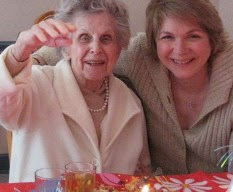The reality of persons diagnosed with Alzheimer's disease or a similar progressive dementia is that many will ultimately need to make a move because they need more care than can be provided at home.
Families can sometimes lose sight of the fact that the demands of full-time caregiving are more then any one person can realistically manage. Understandably though, they may resist the thought of moving a loved one to a care facility.
In making the decision of when to move, there are no right or wrong answers. All caregivers, families, and persons with dementia are unique and will have different circumstances. Friends, doctors, and individual family members will each have opinions about when or if someone should be moved.
However, for most of you the decision to move a loved one is based on a combination of practical, psychological and/or medical reasons that may include one of more of the following:
Caregivers own health is being compromised (including sleep deprivation). Caregivers own physical limitations (lifting, mobility). Caregiver is experiencing loss of work and/or the inability to manage other household or family responsibilities. Sufficient respite support or qualified home care are not available or become unaffordable. Symptoms of the disease are evident and challenging to manage at home (incontinence, aggression, paranoia, wandering).
Person with disease needs more supervision than can be provided at home. Home environment is no longer safe (negotiating stairs, getting in and out of bathroom, narrow doorways). Person with disease is becoming more dependent with more activities of daily living such as eating, dressing, bathing. Person with disease is experiencing weight loss, dehydration or simply refusing to eat. Proper medication management is compromised. Person with disease no longer recognizes home as home.
Even when a thoughtful decision is made to a move a loved one, caregivers are bound to feel sadness, grief, fear, and probably plenty of guilt. These feeling are normal. Caregivers may feel guilty over not upholding old promises to parents or spouses, or they may fear what others will think or say, or fear that the care will be inferior. In addition, the decision underscores the inevitable decline of their loved one, resulting in further sadness and grief.
Once the move is made, many families say it was harder than they had imagined, and that they probably waited too long. The degree to which you can reasonably adjust to the transition is often associated with the planning that was done before the move. In other words, accepting the move seems to be less painful when families feel that they took the time to explore options and then made the best decision they could.
Keep in mind that the role of caregiver doesn't abruptly end once a loved one lives elsewhere, it just changes. You still play a vital role as your loved one's caregiving advocate. However, without direct care responsibilities, you can resume with renewed appreciation the time you spend with other loved ones.
Finally, if you love someone with Alzheimer's disease, remember you are entitled to have a life of your own. Taking care of yourself is a gift to your loved ones as well as yourself. You simply cannot meet every demand. Your thoughts and feeling are normal. You feel guilty because you love.
"The promise to always keep mother at home might have been made with the best intentions and hopes, but inherent in that commitment is the idea that the family will do what is best for Mother. It may be a promise that should be broken, because keeping mother at home may not be best for her."
- from "The Best Friends Approach to Alzheimer's Care".


















No comments:
Post a Comment